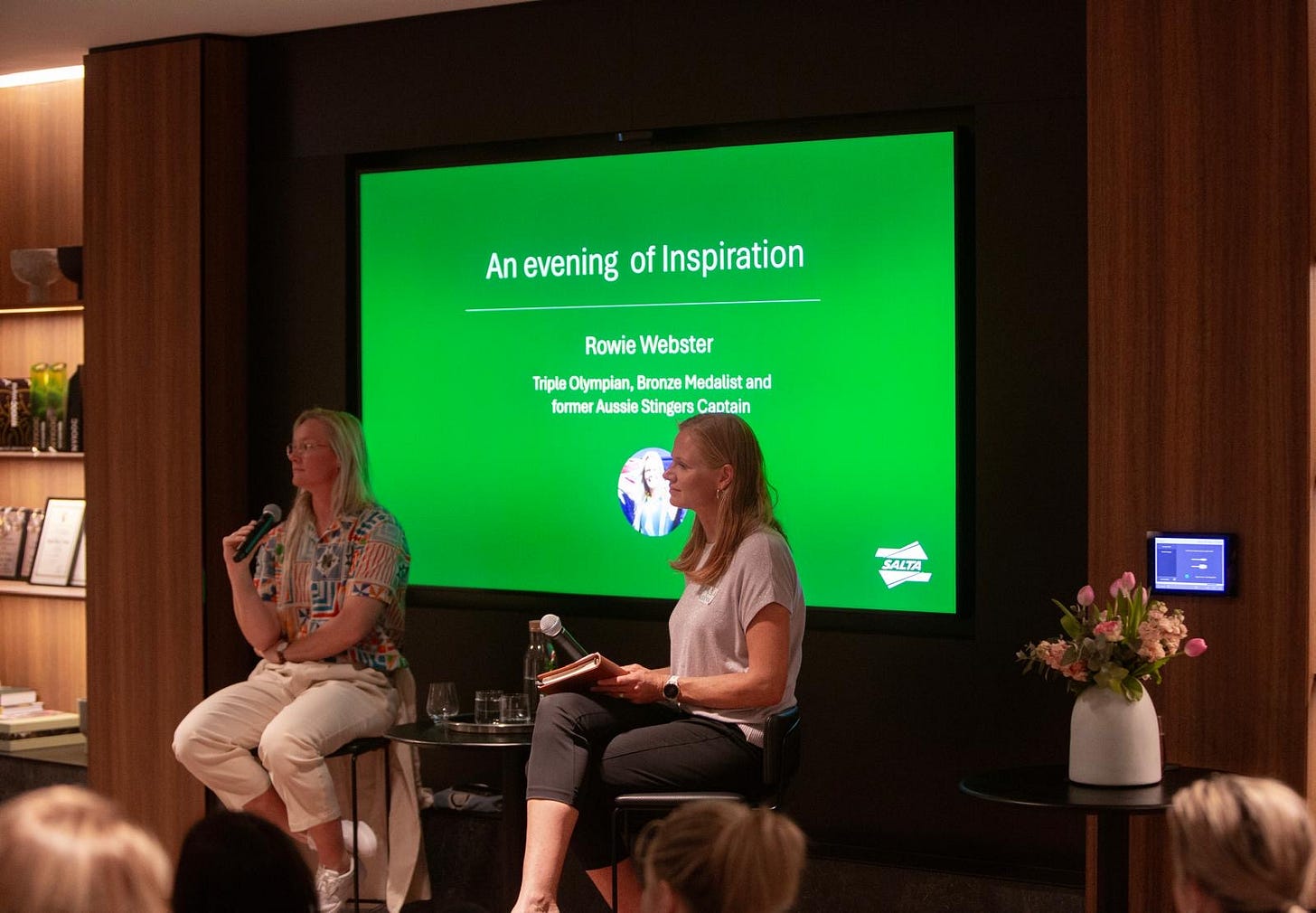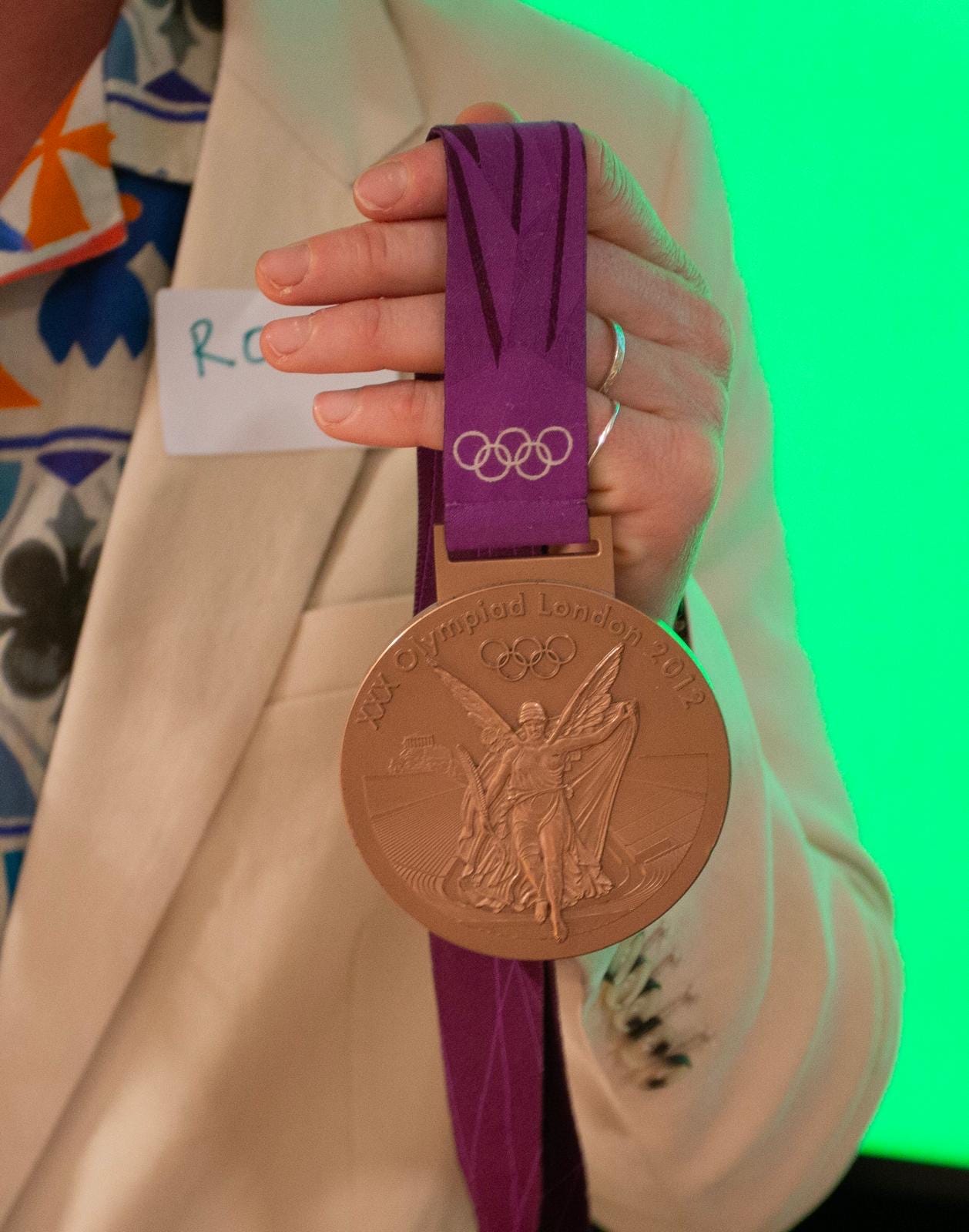Can you benefit from the Critical Conversations concept?
How this high-performance technique can positively impact workplace and home life
A couple of weeks ago in my hometown of Melbourne, I hosted an event with my triple-Olympian, Olympic bronze medallist sister, Rowie Webster. The evening was full of great conversation, inspiring stories and leadership lessons from Rowie’s time playing for and captaining the Australian Stingers water polo team, and more recently, coaching aspiring young athletes.
One of the insights Rowie shared was the concept of ‘Critical Conversations’ and how it positively influenced the Stingers team culture leading up to the Tokyo Olympic Games in 2021.
I have long thought about the concept and how it might apply more broadly in a business or life sense.
What is a Critical Conversation?
Rowie described the concept in the following way:
The Critical Conversations concept is something we learned through the Australian Army’s ‘Gold Medal Ready’ program. Fundamentally, it’s about surfacing issues or niggles that might be brewing amongst team members. We implemented a rule that if something was bothering someone, or if a conversation had gone badly, team members had 24 hours to raise the issue with the person or people involved – either directly or with a third party to mediate.
Following the ‘Critical Conversation’, the issue was not to be brought up again. No airing of old dirty laundry. And if you didn’t raise the issue within the 24-hour timeframe, that was it – you couldn’t bring it up again. You had to let it go and move on.
Rowie shared that while it was extremely hard and confronting in the beginning, it was one of the most transformational actions for the team culture and positively served the team mantra of ‘minute by minute, play by play’.
“We had this mantra that everyone agreed with and bought in to – minute by minute, play by play, that’s how we win the big games. And yet, as in many areas of life, we were bringing old baggage into our present - and it was impacting our performance in the pool. How can you play minute by minute, being truly present and trusting of your teammates, if you’re holding onto past actions, judgements or assumptions about your teammates?” - Rowie Webster
While this interpretation of the critical conversations concept is probably best-suited to a close-knit group like a professional sports team, there are some learnings we can apply to business and life.
It’s so common to hold onto negative ‘baggage’ and conversations from our past – conversations with others, conversations with ourselves, assumptions and judgements.
Many of us also let impactful or hurtful conversations go by - often we have the intention to bring them up, but time passes, we move on and either let resentment fester or forget about it until we’re once again confronted with the same behaviour.
We harbour guilt, judgement, fear or hurt, sometimes over things that are relatively simple to address. I wrote about one such example in Ouch! The downstream impact of not speaking up.
How can we use the Critical Conversations concept?
I once worked with a colleague who is one of the nicest humans I know. She was also a relative office unicorn, in that she maintained firm boundaries around what she would and wouldn’t accept when it came to workplace communication.
If someone said something that she considered inappropriate or upsetting, she kindly but bravely and firmly raised it with the person. Not in a defensive, accusatory or threatening manner, but clearly articulating why she didn’t feel the words had been helpful or necessary. Always within a tight timeframe, and always in a kind way.
Once the conversation was done, that was it – there was never any lingering resentment or anger on her part, and she wasn’t concerned if others were put out by her boundaries.
As a result, she had some of the most trusting, honest and beneficial work relationships of anyone I have come across throughout my career.
She lived her own version of the Critical Conversations concept – in a respectful, workplace-appropriate way. Sometimes uncomfortable, but incredibly valuable.
The opportunity
The beautiful thing about frameworks and concepts is that we can take the bits that resonate with our beliefs and work them into what we’re already doing, or what we’re comfortable trying. We can test, tweak, play with ideas and adjust as we go.
Rowie spoke to the fact that she’s never been afraid of failure and trying new things (which is probably a big part of the reason why she has been so successful), and that she’s become very comfortable navigating setbacks, disappointment and the accompanying feelings.
Taking a leaf out of Rowie’s book, there’s an opportunity for all of us to try the Critical Conversations concept – in any watered-down way we choose, in any area of our lives. In a team setting, it’s probably best to introduce the concept and establish some borders and appropriate rules of engagement.
There’s times and places for letting things go by, but if we can all be a little more courageous in speaking up, perhaps release some decaying negativity and open new space for growth in our relationships, we’ll be on a positive path to greater peace.
Will you try the Critical Conversations concept in some form? I’d love to hear how you go.
“When there is no turning back, then we should concern ourselves only with the best way of going forward.”
- The Alchemist, Paulo Coelho
Thank you for being here,
Larissa
PS: Here’s a close up shot of Rowie’s magnificent Olympic bronze medal:




